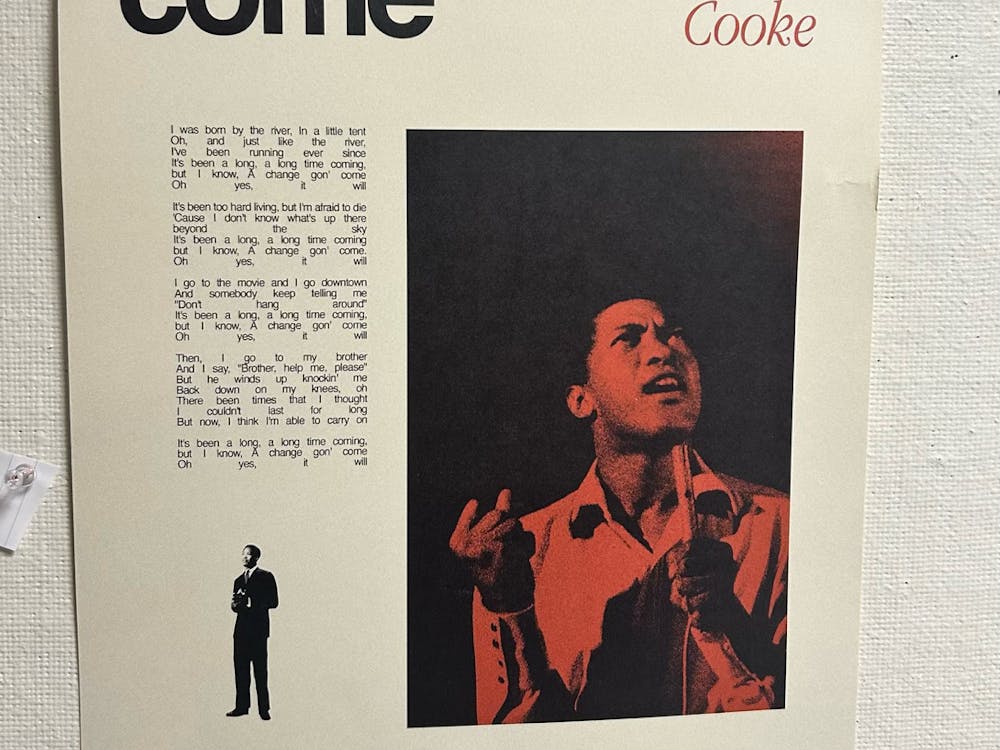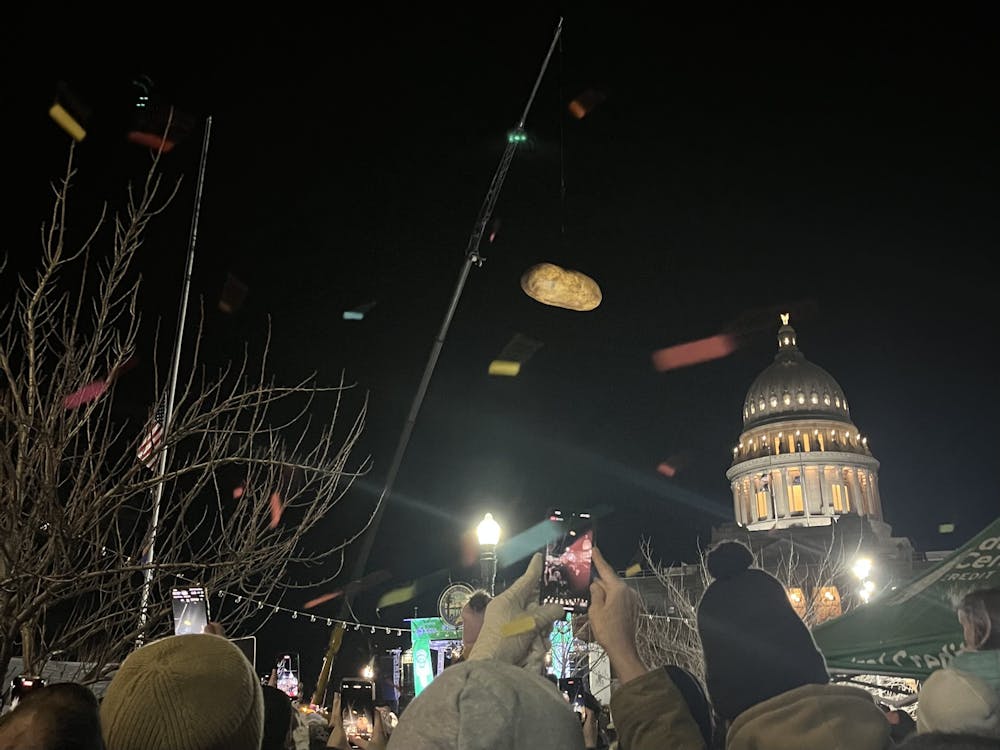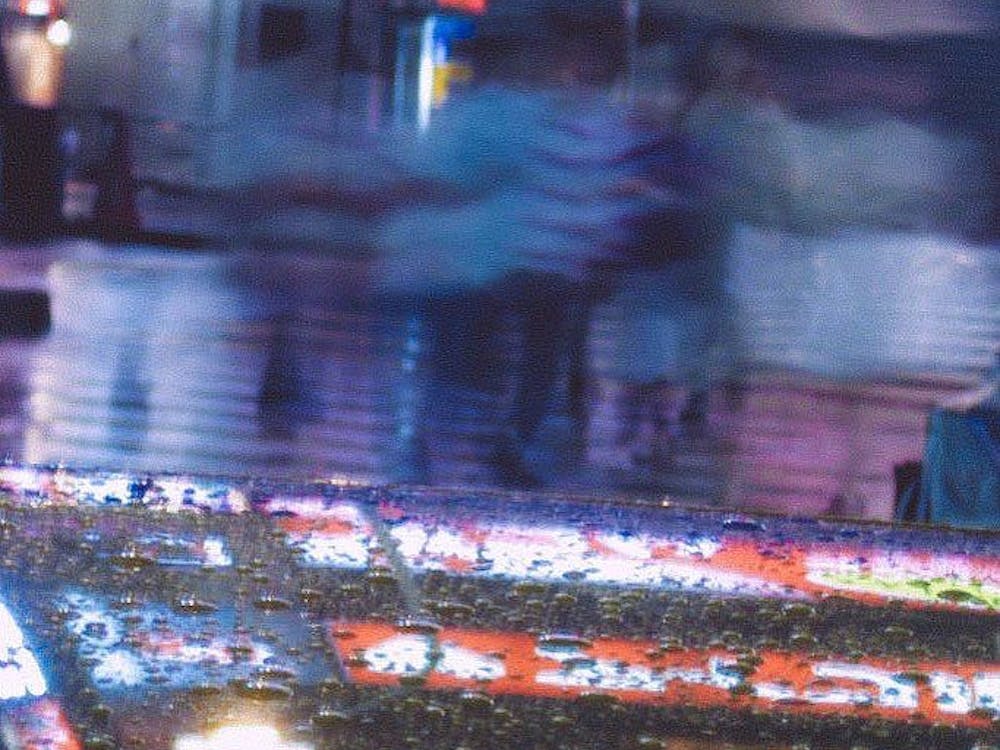Yuri Zelinsky (better known as “George” by his News-Letter peers) attended Hopkins from 1973 to 1977, graduating with a Bachelor of Arts in Social and Behavioral Sciences. During his time at the University, he worked as a staff writer and News Editor for The News-Letter. Today he works in Washington, D.C. as a lawyer.
The News-Letter: Why did you first decide to join The News-Letter?
Yuri “George” Zelinsky: A classmate, I guess she was a year ahead of me, was very active in The News-Letter. She knew that I enjoyed writing. We talked about it and she said “You really ought to come out and work with us and submit something written,” and I did and it went from there. She was the Business Manager.
N-L: Do you have any particularly fond memories of working at The News-Letter?
YZ: There were those nights during the week that, before we had all the technologies available today, you actually had to put the thing together, print it, cut it and paste it with columns. That was a weekly endeavor that was an all-hands-on-deck thing to do, so if you didn’t spend time in the office writing your articles, you certainly spent time in the office putting together the galleys and such.
There was a symposium. I took a quick look back, and unfortunately, I think the archives only go back to about 2000 on The News-Letter website, but there was a time where there was a symposium that was run by The News-Letter. It wasn’t the MSE. It was more directed toward journalism, and we would attract some pretty important, at the time, figures to come and speak. That was an annual event, and I really enjoyed getting involved in getting that set up each year, but also in observing what would transpire.
I have a vivid memory of, I don’t know if you know who Hunter S. Thompson was, but he was the progenitor of what came to be known as “Gonzo journalism.” He was a writer for Rolling Stone. He wrote a few books later that were fairly successful: Fear and Loathing in Las Vegas [and] Fear and Loathing on the Campaign Trail [‘72]. He was a character, and he knew that that was part of his stock and trade, so we had him, among others. We had people like [Bob] Woodward [and Carl] Bernstein, Russell Baker, who was a well-known columnist at the time, but when Thompson came to speak, he showed up in-character, which was to say that he walked out on the stage in Shriver Hall and was carrying a crumpled paper bag with aviator sunglasses and a black leather vest.
I think there were at least two other panelists who were a little more prim. He sat down, dropped his things, paper bag on the chair next to him. The others were sort of looking at him like “What have we got here?” He rummaged around the bag and out came a bottle of Jack Daniels and a bag of ice and a glass, which he filled. It seemed like he had already had a few before he came out, and he proceeded to take over the entire afternoon session, which at times was amusing and alternately a bit frustrating, but never less than entertaining. Afterward there was a reception upstairs in a room that looked out from Shriver Hall onto the quad, and he ramped it up a bit or two there as well, hanging out the window, yelling and behaving like a flamboyant drunk, which perhaps by that time he was thoroughly.
That’s just an anecdote, but having those speakers — again, these are names that might not mean anything to you, but John Chancellor was once the head anchorman for the NBC News, a very respected journalist. Chancellor spoke, and others of that ilk would come to these seminars. I enjoyed that.
We had, as I’m sure Hopkins does now, visiting speakers across all subjects, and so we would be dispatched to write the story about the event, and that was often entertaining.
It led eventually to me doing an internship, although it seemed less formal than that. There used to be a Hearst paper in Baltimore called The Baltimore News-American. There were The Sun papers, which still exist in a sadly watered-down state, and The News-American, and I got a gig on the city desk, obviously as a stringer/part-timer, but they would send me out to cover stories. That was part of the thrill of being involved in journalism. I liked the investigating. I liked the asking questions, getting the facts. That was a big part of what attracted me to it and made me, at least for a time, think that I wanted to pursue a career in journalism. That isn’t what turned out.
N-L: What career did you end up pursuing?
YZ: I went to law school. I’m a lawyer, but I’ve been involved in regulation pretty much my entire career, investigating things, getting the facts, getting behind the facts as they’re presented to find out what really happened, which is what journalists do and what I found myself doing for most of my career.
N-L: What were the big stories the news section covered during your time at the paper?
YZ: I know there was a very, very popular Marxist professor who, not surprisingly, ran afoul during the tenure process in his department, Political Science. He was a cause célèbre for the students and some of the grad students as well, given that Hopkins was trying to march him out the door. That resulted in demonstrations. His name is escaping me, though I should remember his name because I took his class. That was the kind of story at the time. It was, ‘73 to ‘77, right after the Vietnam War wound down and there were still after-effects of that rippling through the body politic and academia...
[We also covered] neighborhood things. There was crime then, there is crime now and crime does encroach on the campus and students. There were periodic stories, some of them pretty tragic to be told, as a consequence of that intersection.
N-L: What was the culture like within The News-Letter staff?
YZ: Irreverent. A bit full of ourselves, though I’m sure it’s not like that now, with a sense of mission. There was sort of a Molotov-throwing sense of trying to upset the order as it was being ordained from the office of the president and others. There was a fair amount of collegiality. There was competitiveness and things you would encounter in any human endeavor. There were romantic relationships. There were power struggles. I don’t want to make it sound like it was the Game of Thrones, it was hardly that, but it had all the dynamism of almost anything that happens when people, especially people who are driven and ambitious, some with talent, are thrown together. Not a bad place. I mean, things were thrown from time to time.
N-L: Do you have any favorite articles you wrote?
YZ: I also dabbled in restaurant reviews, so I enjoyed doing those... Somewhere, and I have no idea where, there’s a carton that has by now yellow and crumbling print copies of the News-Letters that were published with my by-line in them. They may now be nothing more than a box of powdered paper. I have no idea where they are.
N-L: Well, if you’re ever so inclined, I know we’ve got all of the old issues somewhere in the Gatehouse building.
YZ: Terrifying. Really terrifying. The idea of spending an afternoon, although it would probably take more than that, at the Gatehouse, shuffling through old copies of The News-Letter, has a decided appeal, so careful what you offer. I may take you up on it...
I’m pleased to see that The News-Letter is thriving. I have to say, I did take a look, and it really presents now, because you have an online presence, as a serious publication. I think that, and I’m sure some of my colleagues would slightly disagree with me, but I think that back in the day it might have had more of the National Lampoon aspect to it than it does now. Not to say we didn’t do hard news. We did. But it seems more like a serious journalistic venture now, which is to your credit and the credit of all your colleagues.





